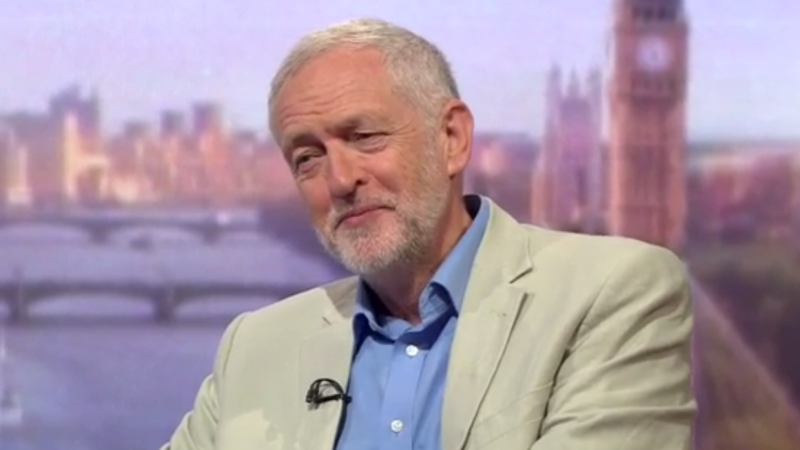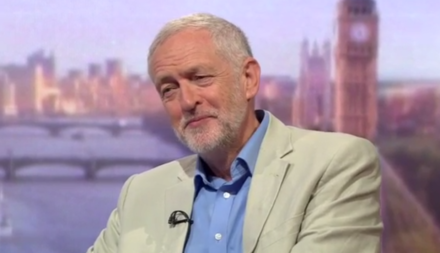

The knee-jerk reaction of so many British politicians to support the US bombing of Syria should be a sharp reminder that Jeremy Corbyn is indispensable to forging a new politics. He took the brave and correct stance not to endorse yet another US-led war. Over three decades these military interventions have ended in disaster. None of the supporters of bombing Syria can explain why another war there would be different.
It is Jeremy’s commitments to peace, to equality and to investment-led growth that set him apart from the well-trodden political failures of the past. But we should be clear; it is also this opposition to war, to racism and to austerity that draws so much criticism from the Tories, the Tory press and all the proponents of business-as-usual in British politics.
One of their current arguments is that Labour’s difficulties in the polls are all attributable to him and that if only we had a new leader, almost any leader, then this would resolve our problems. This is completely untrue.
We can go further. Compared to all his critics, Jeremy Corbyn is worth about 18-20 percentage points to Labour’s vote. Without him, and led by any one of his vocal critics we could easily be languishing in single digits in polls.
Look across the Channel and learn. In the recent Dutch general election our sister party the Dutch Labour Party got less than six per cent. It lost 29 of its 38 seats. This is not a one-off. The official French Socialist Party candidate for the Presidency is now also polling in single digits. The Socialist incumbent Francois Hollande was unable to stand for a second term when his poll rating slumped to four per cent.
In both cases, the Dutch Labour Party and the French Socialist Party had talked about opposing austerity but then implemented it. Trying to shore up their electoral base they turned to anti-immigration and Islamophobic rhetoric and policies. France under Hollande also repeatedly intervened militarily in Africa.
No doubt there are somewhere Dutch and French versions of Peter Mandelson saying that these policies were necessary, or they were popular or they showed firm leadership. They were none of the above. They were indefensible and they proved electorally disastrous. Yet these are precisely the policies that Corbyn’s critics would have him adopt, and would implement themselves if they managed to oust him. They would prove equally disastrous.
There are genuine difficulties for a Labour leader in a time of Brexit. But there are very serious difficulties ahead for the government. The prime minister and cabinet have had to accept an EU divorce settlement of unknown proportions, no trade talks until that is agreed, continued jurisdiction from the European Court of Justice, that almost any deal is better than no deal, and no slashing of immigration. In short, no cake. No eating it.
The economy is forecast to slow and real wages have stopped rising. The NHS, social care and now schools are all in crisis because of Tory cuts. The government’s solution is yet more austerity. They won’t be leading us to sunlit uplands. In a politically volatile era, disillusion with the government could quickly set in.
In those circumstances it is vital that Labour is in a position to capitalise. That means a clear alternative to the Tories in every key area of policy. Jeremy Corbyn remains our best hope of delivering that.




More from LabourList
‘Factionalism at the top is weakening Labour – and handing a gift to Reform’
‘Europe must stand strong on its own as US security guarantees grow conditional’
‘Tackling poverty should be the legacy of Keir Starmer’s government’